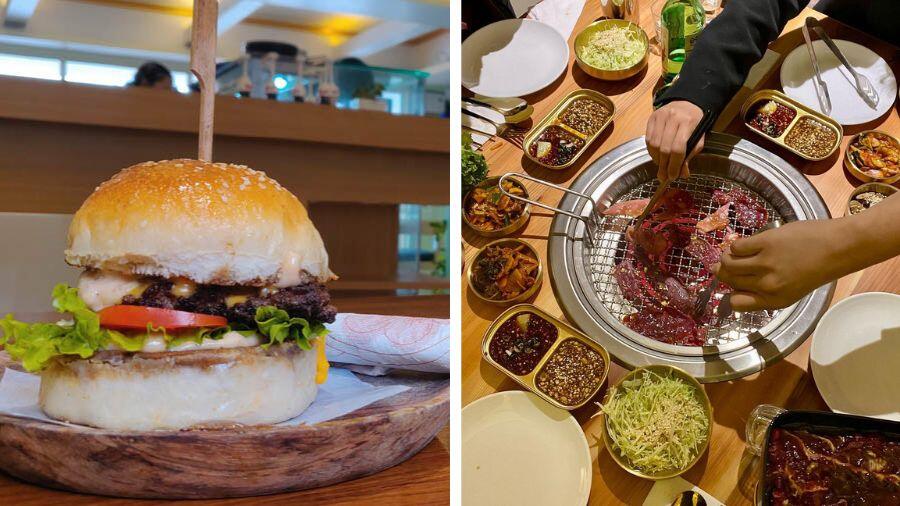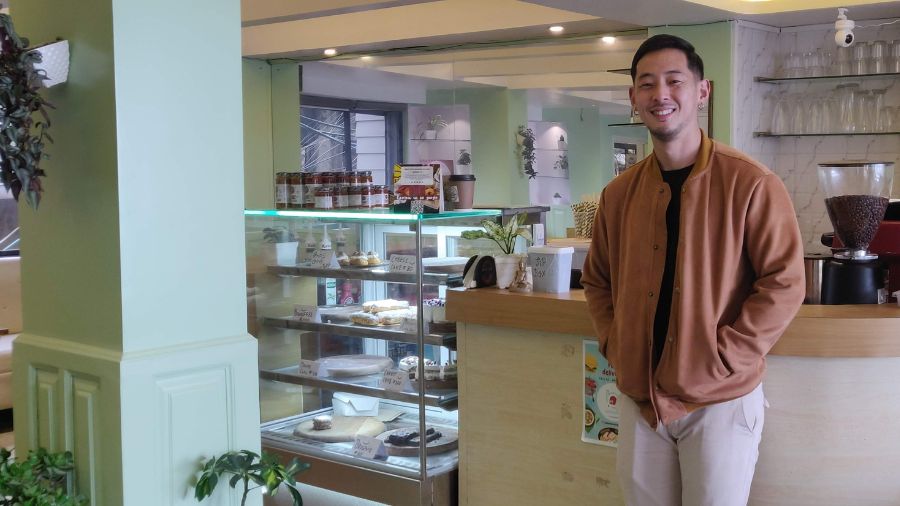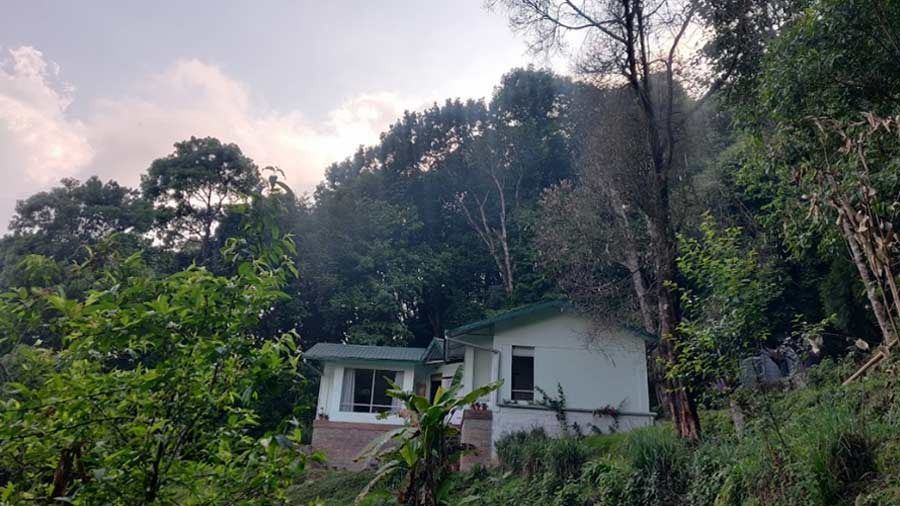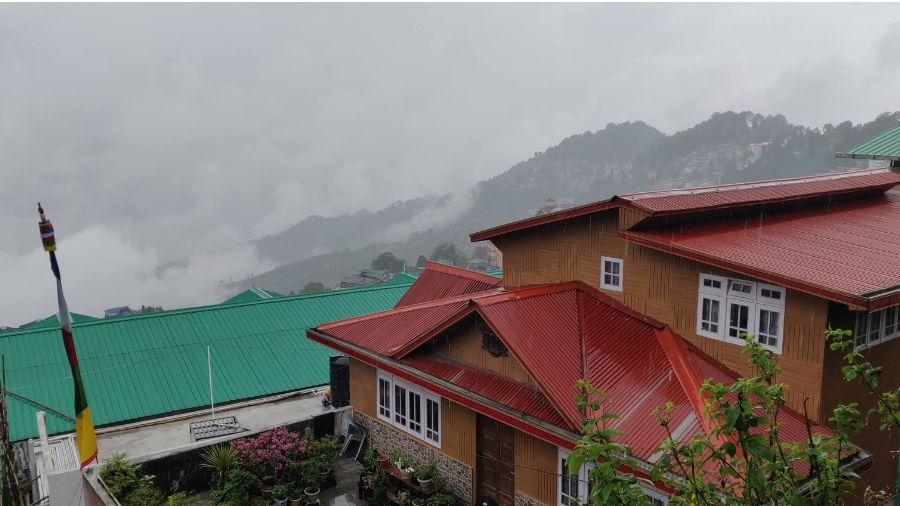The off-season for tourists has just begun in the hill stations of north Bengal but it’s a busy time for Kelvin Kwok. On July 3, the Chinese chef born and brought in Darjeeling opened the second outlet of his venture Burger Cartel in Siliguri’s growing food hub area, Salbari.
“The overwhelming response to our first cafe in Darjeeling prompted us to expand to Siliguri. Many residents of Darjeeling come down to Siliguri to live here for the winter months,” said the 34-year-old chef and restaurateur.
Initially starting as a cloud kitchen during the pandemic, Burger Cartel evolved into a full-fledged cafe, gaining popularity among the locals seeking a blend of American-style burgers, pizzas, and Korean flavours.
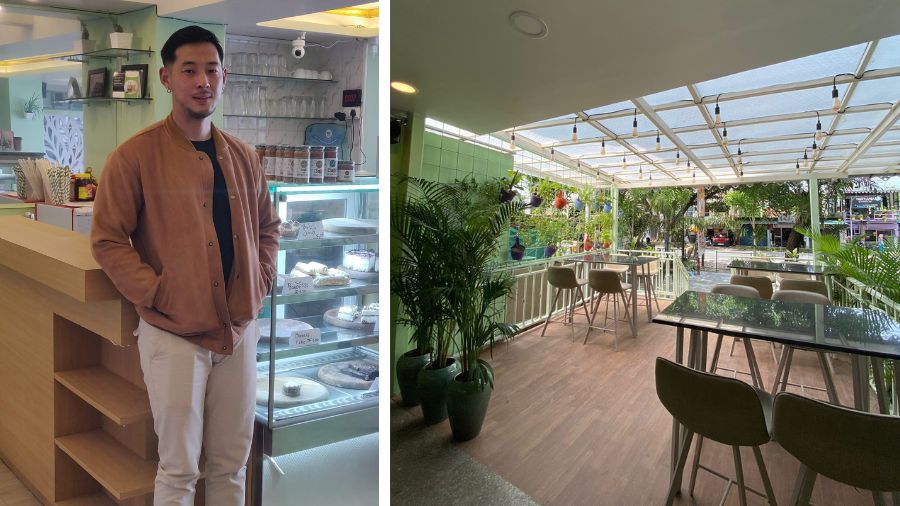
Kwok — or Kwai as friends call him — at the Buger Cartel in Darjeeling, and (right) the interiors of Burger Cartel in Siliguri Karo Christine Kumar, Courtesy Burger Cartel
Situated in Siliguri (located here on Google Maps), the second branch of Burger Cartel is a 32-seater cafe offering both indoor and outdoor seating. It features the same menu as the original, including best-sellers like Gangnam Spice, a fried chicken burger dredged in spicy Korean sauce, sour cream and melted cheddar, Pepperoni Pizza (Neapolitan-style and made with sourdough), Crispy Bird Burger, and Chicken Karate (chicken wings).
Kwok — or Kwai as friends call him — has ambitious plans to expand the brand into other towns and cities, including Kurseong and Kolkata. “Our end goal is to create a multi-chain QSR restaurant. We want to get into the cities and try to expand; as we had a small property in Siliguri, we thought of starting from here. We have plans to open Burger Cartel in Kurseong and, hopefully, make our way into the Kolkata market one day,” revealed the restaurateur who graduated from St Xavier’s College, Kolkata in 2012.
Korean BBQ at Thai Seoul
In December 2022, Kwai also launched Thai Seoul, a Thai cuisine and Korean BBQ restaurant located a floor above the original Burger Cartel branch in Darjeeling at his father’s property, Hotel Seven Seas.
The top attraction at Thai Seoul is the Korean BBQ or Bulgogi. Some of the other pop picks on the menu are Kimbap (Korean seaweed rice rolls), Bibimbap (rice mixed with vegetables/ meat), Moo Ping (Thai-style grilled pork skewers) and Mango Sticky Rice with Coconut Milk. The 36-seater space resembles an izakaya, an informal Japanese bar with snacks.
The idea behind the concept? “I am predominantly a Thai chef and I also wanted to incorporate the Korean culture that is so popular right now. Although there are Korean restaurants in Darjeeling, there is scope for improvement,” said Kwai, who spent several months in Thailand last year, training at Korean cloud kitchen and cafes.
Running a restaurant in the hills comes with its own set of challenges. “Earlier, we used to get lettuce all the way from Kolkata’s New Market to Darjeeling. Now, we’re working with a farmer in nearby Takdah who grows lettuce and basil for us, and he’s expanding his greenhouse to grow Chinese cabbage or kimchi, which is seasonal in Bengal and quite a task to get hold of,” shared Kwai.
In line with their commitment to eco-friendly waste management, the used coffee beans from Burger Cartel also find their way to Tieedi, an environmental conservation organisation in Darjeeling.
